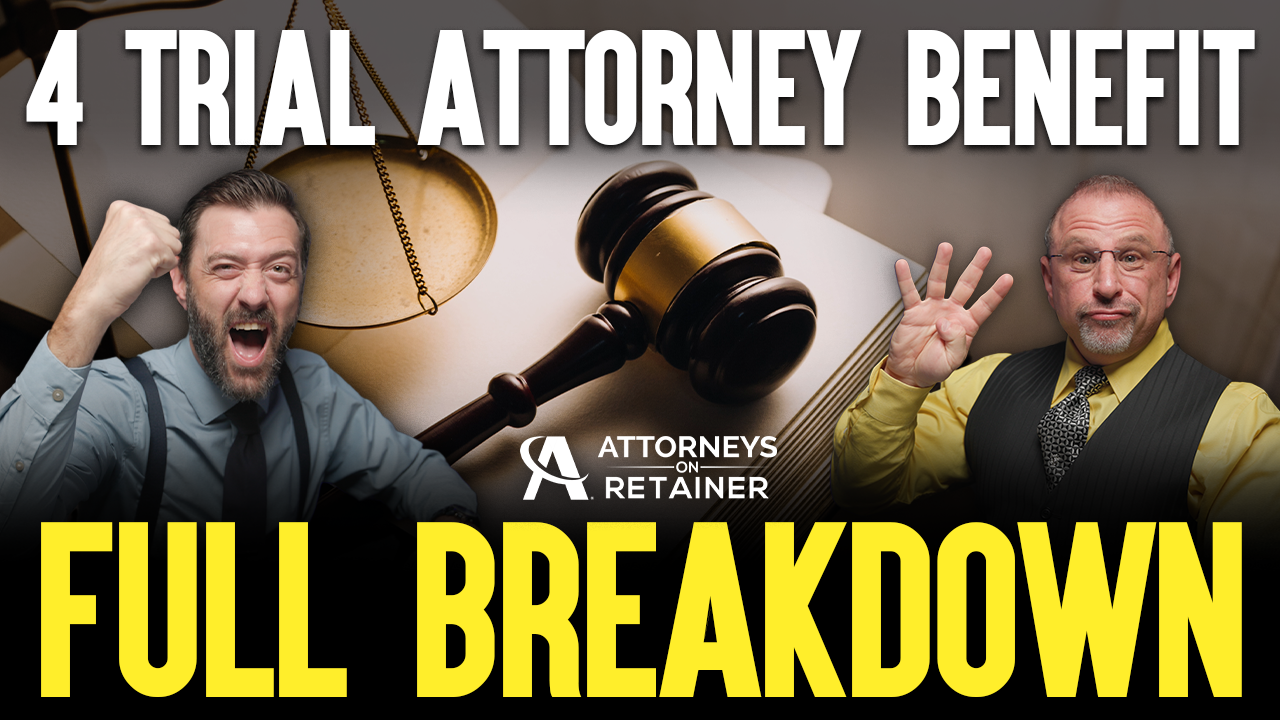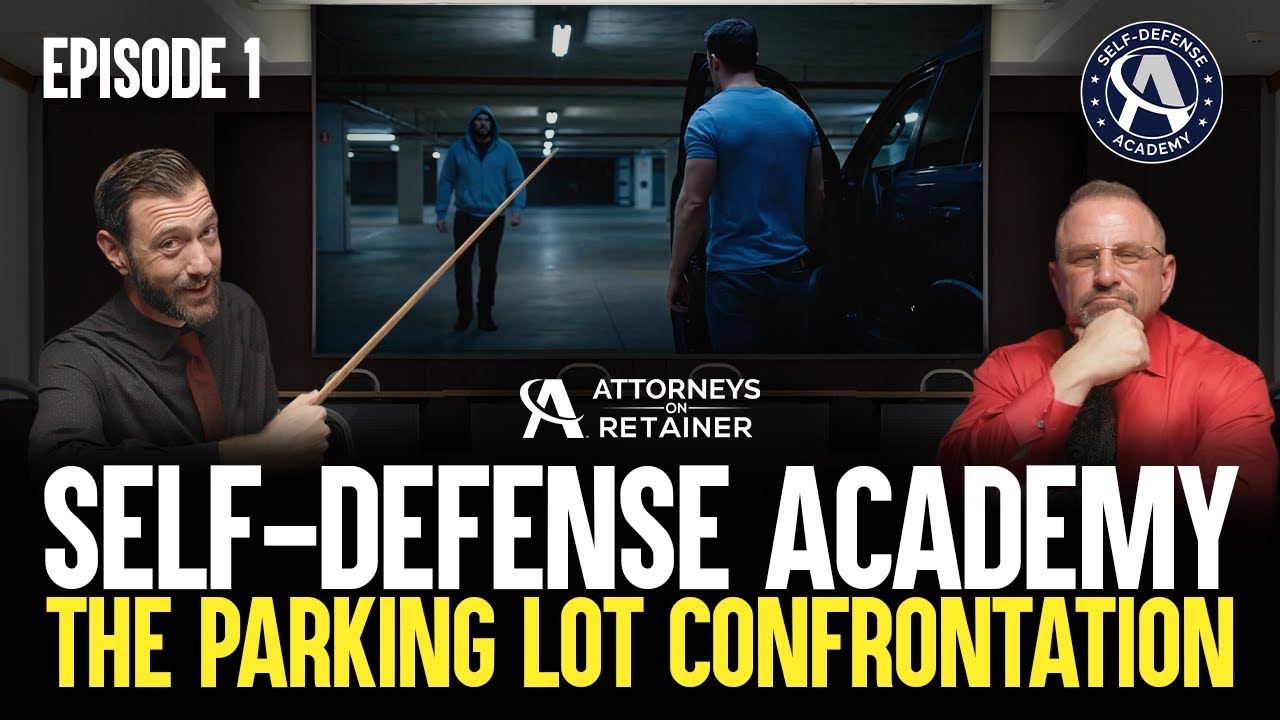AOR’s Letter to USCCA - How Did They Respond to Our Questions?
June 6, 2024
AOR Program Update - 4/1/25
The Attorneys On Retainer Program has been updated since this video was initially released. The program is designed with the same strengths as the original program, particularly its close affiliation with the only law firm in the United States working solely on self-defense cases, and this new program includes much more! For additional information, click here.
On February 8, 2024, criminal defense attorneys Marc J. Victor and Andrew C. Marcantel sent a letter to the United States Concealed Carry Association (USCCA) with a series of questions. The letter consists of questions from the attorneys, viewers, and clients who sought clarity in USCCA’s insurance and membership agreements. The attorneys discuss the concerns raised in the letter and emphasize the importance of accountability in self-defense coverage.
“We acted appropriately. We asked questions. We sent a letter. And if they chose not to respond, that’s on them.”
– Attorney Victor
Notable Questions Posed in the Letter
Criminal Acts Exclusion – Who Decides?
In the letter, the attorneys inquire about the process used to determine whether an act of self-defense is considered a criminal offense. One of the fundamental differences between The Attorneys On Retainer Program (AOR) and USCCA is how they address alleged “criminal acts.” USCCA’s insurance policy includes a criminal acts exclusion clause. Meaning that coverage can be denied if a claim is deemed to be a criminal act. Under USCCA’s model, the insurance company has the authority to make such determinations.
“The big question of who decides is so important . . . [a]t the end of the day, with The Attorneys On Retainer Program, it’s our law firm that makes the decision.”
– Attorney Marcantel
Additionally, the attorneys highlight the ethical challenge that USCCA’s policy poses for attorneys working with the organization, obligating defense counsel to provide discovery. If a defense attorney receives unfavorable evidence, they may hesitate to share it with USCCA or its insurer, fearing that disclosure might result in loss of coverage for their client.
Right to Counsel
The attorneys ask about the criteria used in selecting attorneys for their clients. While USCCA publicly promotes the right of members to select their own attorney, their insurance policy states that the insurer retains the right to assign counsel of their choosing. The attorneys emphasize that transparency about compensation rates and the approval process is essential for consumers who rely on these programs for legal protection.
“If USCCA is not willing to pay what would commonly be known in that jurisdiction as a good lawyer’s rate, you’re not going to get a good lawyer.”
– Attorney Marcantel
Convictions, Plea Agreements, and Post-Trial Support
Another clause in USCCA’s insurance policy is its termination of coverage “upon any conviction for a criminal charge.” This is concerning since most criminal cases result in plea agreements. The attorneys ask questions about how this applies in cases involving plea deals. They also make a comparison to Alan Colie’s case. Despite being a USCCA member, Mr. Colie was represented by a public defender and only received USCCA’s support on appeal after being convicted on one count and acquitted on another.
In the letter, the attorneys ask how Mr. Colie’s appeal was funded if USCCA’s coverage ends upon conviction. The attorneys also discussed Kayla Giles’ case and asked why USCCA stopped funding her defense.
Exclusions Based on Location, Legality of Possession, and Relationships
Several questions focus on whether USCCA excludes coverage for charges related to possession in prohibited areas, domestic disputes, or illegal firearm status.
- Prohibited Possessor: Individuals who are legally barred from owning or possessing firearms or other deadly weapons. This status may arise from a criminal conviction, being deemed a danger to themselves or others, or other specific legal restrictions. Significantly, AOR does not exclude such individuals from coverage.
- Sensitive Areas: Locations like schools or government buildings where firearm possession is legally restricted. If a defensive shooting is justified, the presence of a firearm in a sensitive location could be a legal issue that may void coverage with organizations like USCCA. AOR does not exclude individuals involved in self-defense incidents in such areas from coverage.
- Domestic Disputes: Domestic violence laws often encompass more than spouses – family members, roommates, and ex-partners. AOR does not exclude defense coverage in these cases.
“The Attorneys On Retainer Program specifically does not exclude these kinds of things. Does USCCA? I couldn’t tell from reading their contract, so we figured we’d ask this question.”
– Attorney Victor
Conclusions
The attorneys reiterate that AOR is built on transparency and full disclosure. Every new client is required to watch a detailed video explaining the entire fee agreement so that there are no surprises. Additionally, AOR offers easy cancellation, no-pressure sign-ups, and an open-door policy for questions.
If you want reliable legal defense for self-defense cases without all the unnecessary exclusions, be sure to check our Attorneys On Retainer Program. For more information, contact us by calling (866)-404-5112 or email us.



